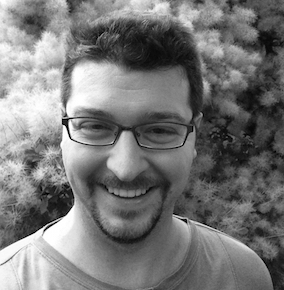My grandmother has begun practicing
leaving her body to pursue a stronger polestar.
Afterwards, she remembers nothing but insists
we mustn’t worry. Once, I saw a homeless man
pass out and hit the sidewalk with the force
of a jackhammer. Such awful amaze,
then, when he stood, his head flat
as a rotten cantaloupe. Later,
my mother told me of an infant cousin
whose body closed too quickly,
leaving her softest organs outside of herself,
floating atop her skin like swollen buds.
As if in compensation, she has developed
a single ironic hardness, the plates of her skull
fusing too soon. Now the doctors
will save her life by crushing her head. At last
I must report how first my brother’s room
was overrun by moths and now there’s nowhere
a light that there is not also a pale wisp
being battered against it. I am trying to say
that this is one way it works: We choose
some seeming infinitude. In test flights
we practice the power to shed our hardness.
At last, and most when we least expect it,
something gives.
—
Note: Positive phototaxis is the behavior exhibited by many plants and animals—notably moths—to move inexorably towards a source of light.
 Adam McGee is a Pushcart nominee whose poems have recently appeared in Bayou Magazine, Assaracus, The Delmarva Review, RHINO, Kenning Journal, and Euphony. McGee is the editorial assistant for Transition and the associate editor for special exhibitions at the Harvard Art Museums. He recently completed a Ph.D. in Black Studies. He grew up in rural Delaware but now calls Boston home. www.adammichaelmcgee.com
Adam McGee is a Pushcart nominee whose poems have recently appeared in Bayou Magazine, Assaracus, The Delmarva Review, RHINO, Kenning Journal, and Euphony. McGee is the editorial assistant for Transition and the associate editor for special exhibitions at the Harvard Art Museums. He recently completed a Ph.D. in Black Studies. He grew up in rural Delaware but now calls Boston home. www.adammichaelmcgee.com

